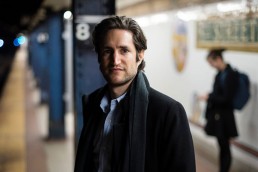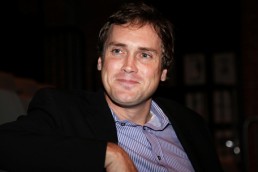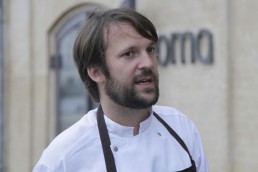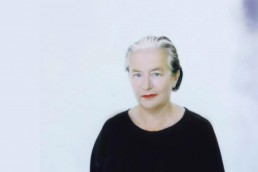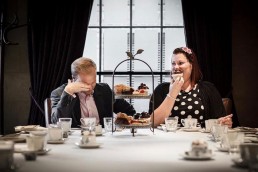Adam Alter - Irresistible
People have been addicted to substances for thousands of years, but for the past two decades, we’ve also been hooked on technologies, like Instagram, Netflix, Facebook, Fitbit, Twitter, and email—platforms we’ve adopted because we assume they’ll make our lives better. These inventions have profound upsides, but their appeal isn’t an accident. Technology companies and marketers have teams of engineers and researchers devoted to keeping us engaged. They know how to push our buttons, and how to coax us into using their products for hours, days, and weeks on end.
Tracing addiction through history, Alter shows that we’re only just beginning to understand the epidemic of behavioral addiction gripping society. He takes us inside the human brain at the very moment we score points on a smartphone game, or see that someone has liked a photo we’ve posted on Instagram. But more than that, Alter heads the problem off at the pass, letting us know what we can do to step away from the screen. He lays out the options we have to address this problem before it truly consumes us. After all, who among us hasn’t struggled to ignore the ding of a new email, the next episode in a TV series, or the desire to play a game just one more time?
“We live in an age of addiction — seemingly benign and otherwise — and Adam Alter, mixing the latest in behavioral science with briskly engaging storytelling, wakes us to an age-old problem that has found troubling new expression in the era of ubiquitous technology. You may never look at your smartphone in the same way again.”
—Tom Vanderbilt, author of Traffic and You May Also Like
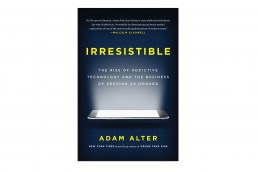
Check out this video to see him talking about the book
Tom Vanderbilt - You May Also Like
You may also like, taste in age of endless choice.
Why we like the things we like, why we hate the things we hate, and what our preferences reveal about us.
With a voracious curiosity, Vanderbilt stalks the elusive beast of taste, probing research in psychology, marketing, and neuroscience to answer myriad complex and fascinating questions. Comprehensively researched and singularly insightful, You May Also Like is a joyous intellectual journey that helps us better understand how we perceive, judge, and appreciate the world around us.

Check out this video to see him talking about the book
Noma - Clever branding by one of the best restaurants in the world
Noma by Rene Redzepi
Check out “A Very Short Film About the Past, Present and Future of Noma” by Rene Redzepi.
Noma is a two-Michelin-star restaurant run by chef René Redzepi in Copenhagen, Denmark. The name is a portmanteau of the two Danish words “nordisk” (Nordic) and “mad” (food).[2] Opened in 2003, the restaurant is known for its reinvention and interpretation of the Nordic Cuisine.[1] In 2010, 2011, 2012 and 2014, it was ranked as the Best Restaurant in the World by Restaurant magazine.[3][4][5]
Self fulfilling prophecies by Li Edelkoort
Self fulfilling prophecies:
When you have as much clout as Li Edelkoort, your prophecies become self fulfilling. However, it took her almost a lifetime to get there.
'It's the end of fashion as we know it'
Lidewij Edelkoort
Fashion is dead:
Trend forecaster Li Edelkoort has declared, describing the fashion industry as “a ridiculous and pathetic parody of what it has been”
Lidewij Edelkoort, one of the world’s most influential fashion forecasters, used her annual presentation at Design Indaba in Cape Town to fire a broadside at the industry. “This is the end of fashion as we know it.”
Edelkoort said her interest in fashion had now been replaced by an interest in clothes, since fashion has lost touch with what is going on in the world and what people want.
“Fashion is insular and is placing itself outside society, which is a very dangerous step,” she said in an interview.
Edelkoort listed a number of reasons for the crisis in fashion, starting with education, where young designers are taught to emulate the famous names. “We still educate our young people to become catwalk designers; unique individuals,” she said, “whereas this society is now about exchange and the new economy and working together in teams and groups.”

Catering the super wealthy
The World’s Most Expensive Food:
Meet the people supplying and buying £195 chocolate bars, £80,000 bottles of wine and £1000-per-person bespoke dining experiences.
A fine example of extreme marketing for the super wealthy to cater their endless lust for things less wealthy people can’t have. And bloody entertaining too.
Series two of Channel 4’s The World’s Most Expensive Food meets William Hanson to see him at work teaching the art of afternoon tea.

